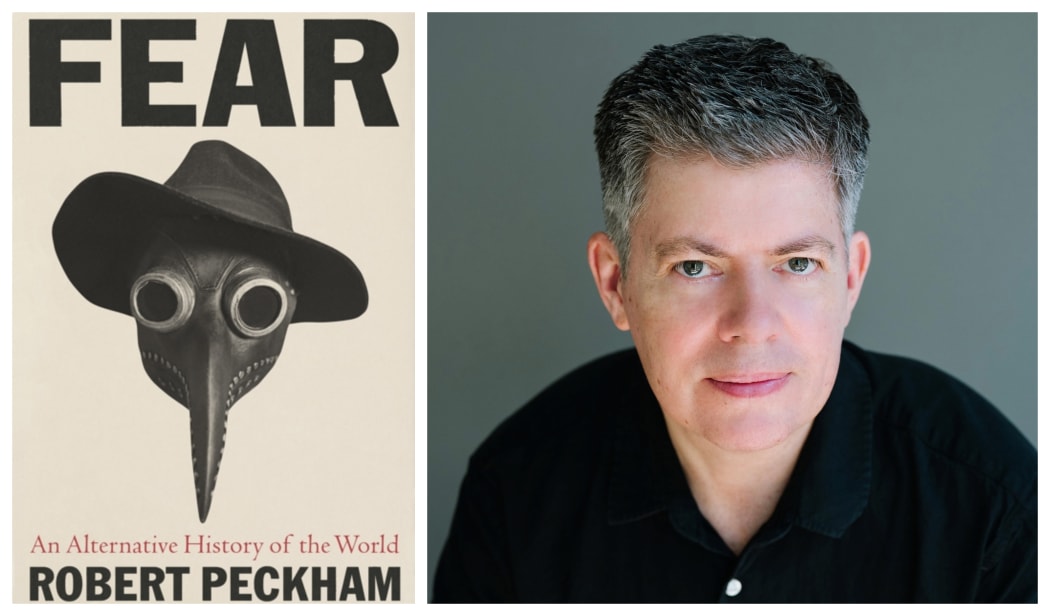Fear is what keeps us alive but it can also be destructive and divisive.
In his new book Fear: An Alternative History of the World, historian Robert Peckham looks at the role fear has played across major events in history, including the Covid pandemic.

Photo: Supplied
"Fear has this liquid quality, it can move between different domains, and it's very, very hard to pin down," he tells Kathryn Ryan.
Robert Peckham is a historian of epidemics and pandemics who has held fellowships at Cambridge and Oxford. He is the founder of Open Cube - an organisation that promotes the arts, science and technology for health. He is currently a visiting scholar at New York University.
Robert says he was working at the University of Hong Kong at the beginning of the Covid pandemic when fears related to the virus became conflated with fears of the "pretty draconian measures" being used to suppress pro-democracy protests.
In such a period of turmoil, the management of fear becomes very important, he says.
The world's current "very fear-centered" political landscape emerged in the mid-20th century, he says.
"It became more about preventing the encroachment of totalitarianism, preserving and protecting individual rights. And fear became an important tool in that protection. It could be argued that we've sort of inherited this Cold War approach to fear as an important tool in protecting rights to the extent that we're less about espousing values and more about trying to protect them through fear. Fear has entered into the heart of our politics … as the fear of something happening that, in some sense, takes things away from us."
When fear is wielded for power, though - as in dictatorships - it often comes back to haunt the person or people involved, he says.
"Fear can't be centrally managed - ultimately it will always dissipate and confound the authority using it."
Fear has a duality too - just as it can shatter communities, it's also fundamental to the construction of new communities and the motivation for social change.
"Fear can be motivating in the sense that it alerts us to the threat that if we do not tackle these things, the consequences will be pretty major."
New technologies emerge both as new conduits for fear and new platforms for managing it, Peckham says.
"There's always this ambiguity of technology being a way of building bridges and also a way of fragmenting. I think we're seeing that definitely speed up with internet technologies. Coalescing around these technologies are lots of fears about human autonomy, privacy, misinformation and disinformation."
During the Covid pandemic, fear of Coronavirus merged into and became enmeshed with a host of other kinds of fears, he says.
"We fear a disease, but we also fear, our security, economic, social breakdown, etc, and these fears become very, very entangled.
"Fear has this liquid quality, it can move between different domains, and it's very, very hard to pin down."
The way that different cultural fears tend to play off against each other makes public health management very complicated in moments of crisis, Peckham says.
"Public health has always relied to a certain extent on fear, in order to change people's behaviours to stop the spread of a disease. But of course too much fear then leads to apathy and paralysis. So it's finding the balance between the uses of fear and the misuse of fear that becomes very important in these contexts."
The Covid pandemic also demonstrated the way that fear is often linked to the stigmatisation of an object, person or group of people who are viewed as responsible in some way for the threat that has caused the fear, he says.
In every society there will always be a balancing act between too much fear and not enough fear, Peckham says.
"That's a negotiation that will always happen but we need the structures within which to have trust, to have information that we can count on."

